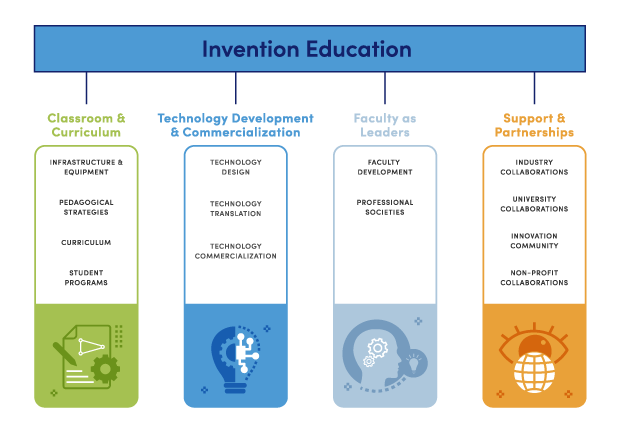What is Invention Education?
Invention education is a powerful transdisciplinary approach to inspire and empower innovators of the future. Invention education challenges inventors to identify pressing problems and helps them develop innovative solutions that can advance our society, save lives, and reduce poverty.
Invention education cultivates active learning through design-based invention and entrepreneurship thinking. Through student, faculty, and community engagement, invention education bridges the gap between university learning and practical skills in developing innovative engineers.
The invention education model has four pillars:

Classroom & Curriculum: Invention education curriculum immerses student teams in project-based learning, both in the classroom and in the field. This model transforms learning environments through opportunities for students and faculty to develop inventions alongside clinical and industry partners. Design studios are an important part of the Invention Education model, providing infrastructure for hands-on, project-based learning.
Technology Development & Commercialization: This model employs a design process where students, faculty, and the community develop high-impact technologies that improve health and reduce poverty.
Faculty as Leaders: Faculty champions lead invention education initiatives to empower student innovators. Engineering faculty leverage active learning approaches found in invention education, including incorporating the design studios into their curriculum.
Support & Partnerships: Solving real-world challenges requires collaboration. Through invention education, students collaborate with local and global communities to tackle pressing issues. University administration, local industry partners, and governments support this model, leading to future employment for graduating students, along with technology design, transfer, and commercialization support.
